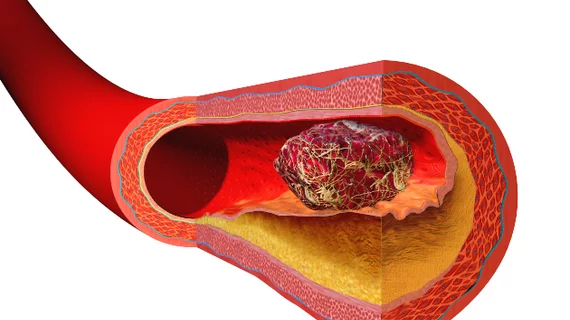New 'vortex ultrasound' tool shows promise for treating blood clots
Researchers have developed a new tool that harnesses the utility of ultrasound to break down blood clots in the brain much quicker than standard treatment techniques.
The small clot-busting transducer was developed by a team of researchers at North Carolina State University. It uses a technique dubbed “vortex ultrasound,” which eliminates blood clots with helical ultrasound waves, rather than other sonographic techniques that make use of forward-facing waves.
“In other words, the ultrasound is swirling as it moves forward,” explained co-corresponding author of a new paper detailing the tool Xiaoning Jiang, who is the Dean F. Duncan Professor of Mechanical and Aerospace Engineering at North Carolina State University. “Based on our in vitro testing, this approach eliminates blood clots more quickly than existing techniques, largely because of the shear stress induced by the vortex wave.”
The transducer is small enough to be inserted into a blood vessel via catheter. The swirling, vortex effect of the ultrasound waves it produces has been shown to eliminate blood clots in as little as half an hour when tested using animal blood in a 3D printed in vitro model of the cerebral venous sinus.
Given that it has not yet been tested in humans, the team performed various experiments on the 3D model to gauge its safety and found that it did not cause damage to the walls of blood vessels or to the red blood cells themselves.
The next step in the research is to test the tool’s treatment of CVST in an animal model. If that proves effective, the team intends to then pursue clinical trials.
The paper is published in the journal Research. The study abstract can be viewed here.

